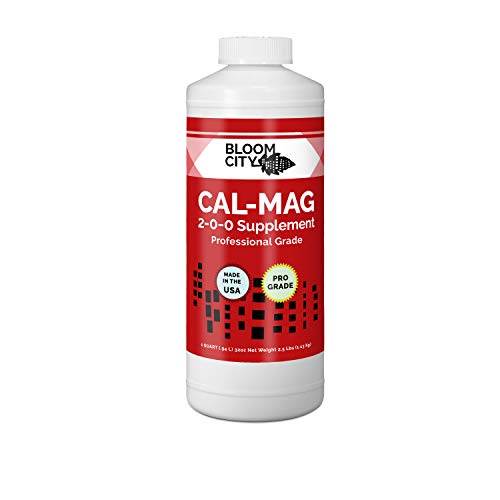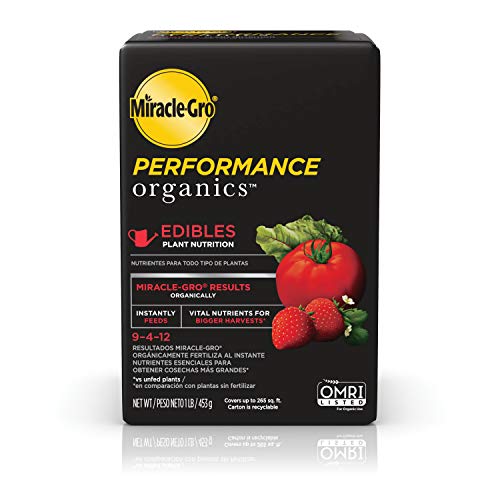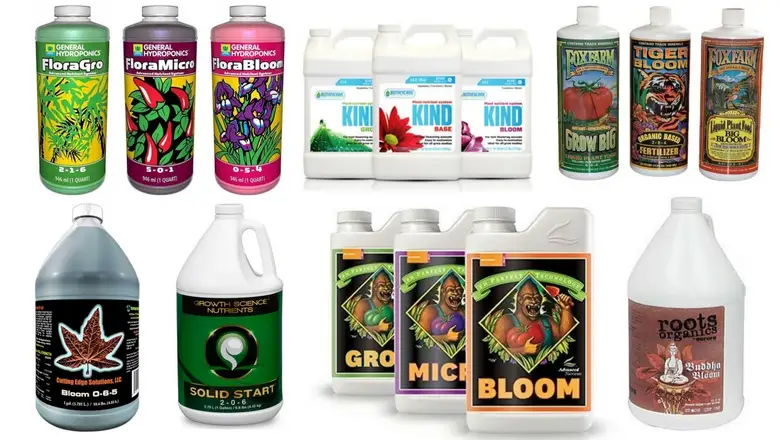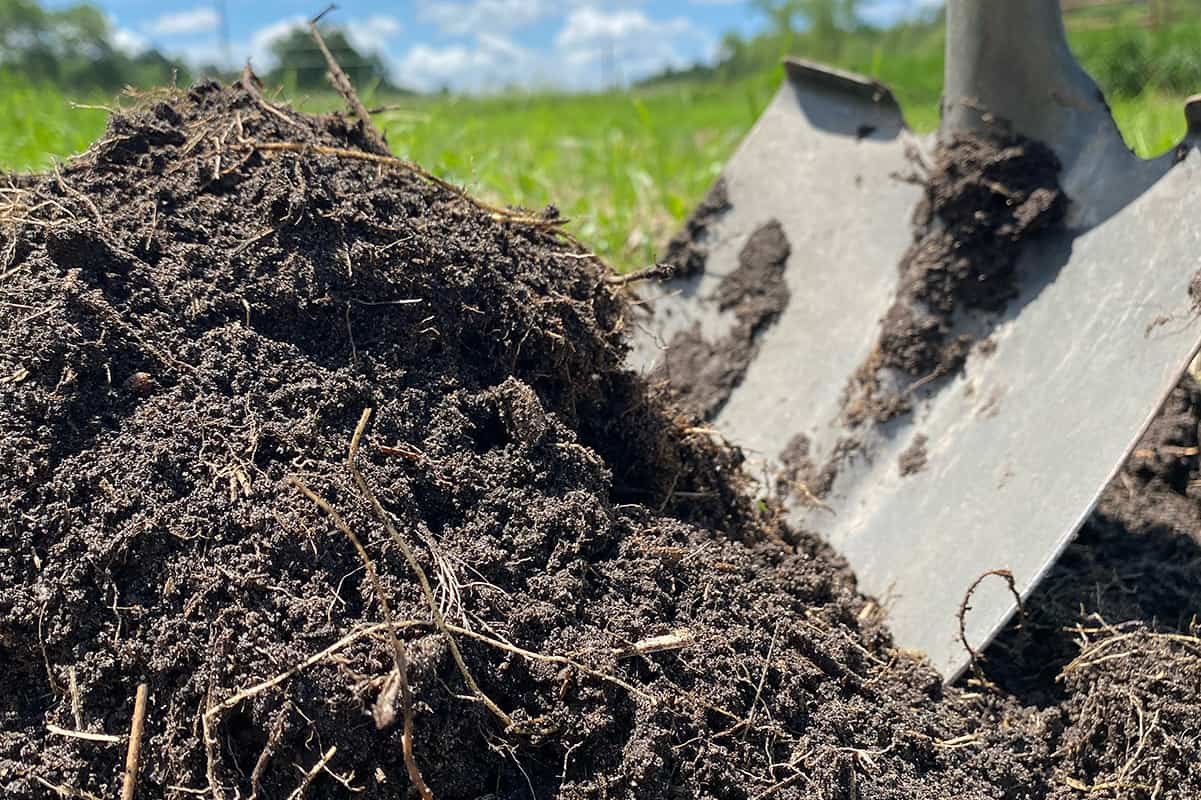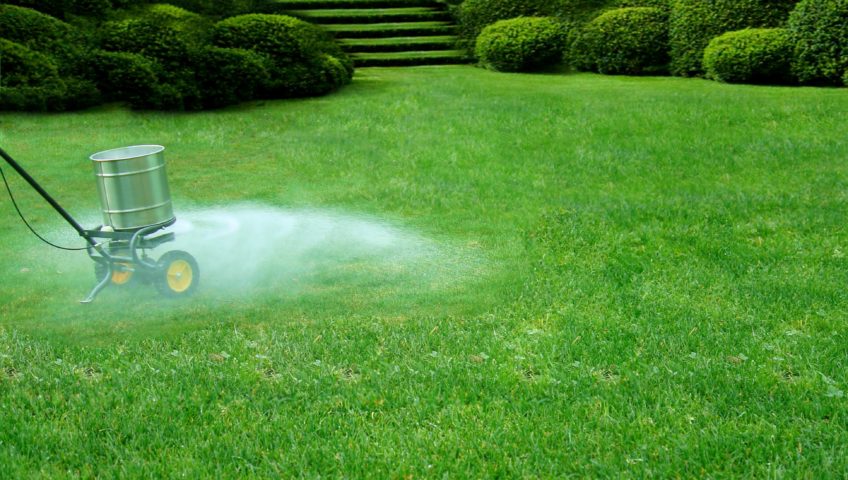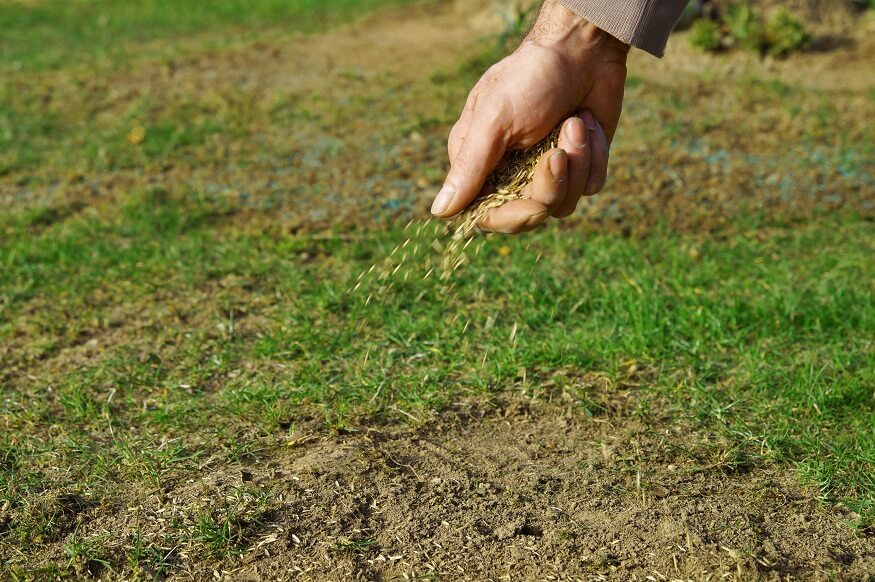Best Organic Fertilizer For Tomatoes of 2024
Philip Jackson Apr 24, 2024 5:31 AM
In this review, the Gilsons Lyceum Reviews Team researched the 10 best organic fertilizer for tomatoes to help you find the product that’s right for you and your garden. You can see some famous brands as Espoma, Bloom City, FoxFarm, Dr. Earth, Jobe's, Joyful Dirt, IV Organic, Geameon, Miracle-Gro.

Overview
Organic fertilizer has numerous advantages, especially when you consider how thin-skinned tomatoes can be. Chemical fertilizers can kill beneficial microorganisms in the soil, making the soil uninhabitable for them.
Tomato plants, like other home garden plants, rely on three essential nutrients for their ultimate yield: potassium, nitrogen, and phosphorus. Organic materials can be used to feed your tomato plants with the proper nutrient composition without harming the environment, even though commercially available synthetic fertilizers have the same nutrients.
To learn how to grow healthier, more nutrient-dense tomatoes using organic methods, continue reading.
- SCORE9.6AI Score
G Score is a ranking system developed by our team of experts (people love working outdoors with people and plants). It from 0 to 10 are automatically scored by our team based upon the data collected. This score has no relationship or impact from any manufacturer or sales agent websites. Learn more
- BrandEspoma
- Prime
- SCORE9.4AI Score
G Score is a ranking system developed by our team of experts (people love working outdoors with people and plants). It from 0 to 10 are automatically scored by our team based upon the data collected. This score has no relationship or impact from any manufacturer or sales agent websites. Learn more
- BrandBloom City
- Prime
FoxFarm Happy Frog Garden Tomato and Vegetable Soil Dry Plant Fertilizer Mix for Outdoor Organic Plant and Garden Care, 4 Pound Bag (FX14690)
View on Amazon- SCORE9.4AI Score
G Score is a ranking system developed by our team of experts (people love working outdoors with people and plants). It from 0 to 10 are automatically scored by our team based upon the data collected. This score has no relationship or impact from any manufacturer or sales agent websites. Learn more
- BrandFoxFarm
- Prime
- SCORE9.2AI Score
G Score is a ranking system developed by our team of experts (people love working outdoors with people and plants). It from 0 to 10 are automatically scored by our team based upon the data collected. This score has no relationship or impact from any manufacturer or sales agent websites. Learn more
- BrandDr. Earth
- Prime
- SCORE9.2AI Score
G Score is a ranking system developed by our team of experts (people love working outdoors with people and plants). It from 0 to 10 are automatically scored by our team based upon the data collected. This score has no relationship or impact from any manufacturer or sales agent websites. Learn more
- BrandJobe's
- Prime
Premium Concentrated All Purpose Pure and Clean Plant Food and Fertilizer. Easy Use Shaker (3 oz)
View on Amazon- SCORE9.0AI Score
G Score is a ranking system developed by our team of experts (people love working outdoors with people and plants). It from 0 to 10 are automatically scored by our team based upon the data collected. This score has no relationship or impact from any manufacturer or sales agent websites. Learn more
- BrandJoyful Dirt
- Prime
- SCORE9.0AI Score
G Score is a ranking system developed by our team of experts (people love working outdoors with people and plants). It from 0 to 10 are automatically scored by our team based upon the data collected. This score has no relationship or impact from any manufacturer or sales agent websites. Learn more
- BrandIV Organic
- Prime
- SCORE9.0AI Score
G Score is a ranking system developed by our team of experts (people love working outdoors with people and plants). It from 0 to 10 are automatically scored by our team based upon the data collected. This score has no relationship or impact from any manufacturer or sales agent websites. Learn more
- BrandGeameon
- SCORE9.0AI Score
G Score is a ranking system developed by our team of experts (people love working outdoors with people and plants). It from 0 to 10 are automatically scored by our team based upon the data collected. This score has no relationship or impact from any manufacturer or sales agent websites. Learn more
- BrandJobe's
- Prime
Miracle-Gro Performance Organics Edibles Plant Nutrition - Organic Plant Food Feeds Instantly, for Tomatoes, Vegetables, Herbs and Fruits, Promotes a Bountiful Harvest, 1 lb.
View on Amazon- SCORE9.0AI Score
G Score is a ranking system developed by our team of experts (people love working outdoors with people and plants). It from 0 to 10 are automatically scored by our team based upon the data collected. This score has no relationship or impact from any manufacturer or sales agent websites. Learn more
- BrandMiracle-Gro
- Prime
Last update on 2024-04-24 / Affiliate links / Images, Product Titles, and Product Highlights from Amazon Product Advertising API
Best Natural Fertilizers for Tomato Plants
Epsom Salt
Adding Epsom Salt to tomatoes has a significant impact on their ability to bloom. If the soil lacks magnesium and sulfur, the fruits will take longer to ripen. If you've ever grown tomatoes, you'll know that magnesium is a key ingredient in the production of fruit. Tomatoes will rot if the soil is deficient in this crucial nutrient. If your plants' leaves are turning yellow because of a lack of magnesium, turn to Epsom salt.
This organic remedy is the best way to deepen the green color of your tomatoes while also improving their flavor.. Epsom salt is best used when preparing a seedling nursery for tomato seedlings. One tablespoon of Epsom salt should be sufficient for each planting hole. You can also use a misting bottle to spray the solution on the tomatoes after diluting it with a gallon of water. The solution is quickly absorbed through the leaves.
Fish Emulsion
If you plan to transplant your tomatoes during the growing season, we highly recommend using Fish emulsion fertilizer. The process of making a fish emulsion is incredibly simple. When it comes to foliar feed, it's made of fish parts and has a 4-1-1 NPK composition, which is useful when you're looking for nitrogen. Nitrogen, as you may know, prevents your tomatoes from growing too slowly.
Proteins, nucleic acids and chlorophyll can all be synthesized with the help of nitrogen extracted from fish emulsion. It's a great idea to add fish emulsion to the potting soil because tomatoes don't produce their own nitrogen. Using homemade fish emulsion also has other advantages that you won't find in commercial products.
Microorganisms that aid in decomposition and keep the potting soil in good health are found in this product. Adding one part fresh fish, one part sulfur-free molasses, and three parts sawdust will make the fish emulsion much more potent. To use, dilute 1 tablespoon of the mixture in 1 gallon of water before spraying the solution on the tomato plants' roots.
Spraying the leaves, on the other hand, will yield faster results. In the event that making your own fish emulsion fertilizer seems like a daunting task, you can purchase concentrated fish emulsion fertilizer instead. Compost manure takes longer for nutrients to be absorbed than fish emulsion because the nutrients are absorbed through the leaves. This solution, which contains gibberellin hormones, allows your tomatoes to bloom much more quickly than they would if the flowers were allowed to emerge naturally.
Coffee Ground Fertilizer
Coffee ground fertilizer applied to the top two to three inches of soil will significantly aid in pH balancing. Coffee grounds, on the other hand, should not make up more than 20% of the compost. Magnesium, calcium, and potassium are some of the minerals found in coffee grounds. Other green materials, like kitchen waste or grass clippings, have a similar mineral ratio.
To speed up the decomposition of the coffee grounds, you should mix them with brown materials like dead leaves. Top-dress the coffee grounds with organic mulch after they've been spread to a depth of about 12 inch. This helps the soil retain moisture. Coffee grounds are an excellent source of nitrogen, but they can also obstruct air flow, so the layer should be relatively thin.
Vegetable-Based Organic Fertilizers
Some of the best vegetable fertilizers include:
Alfalfa Meal
As a rabbit food or hay bale, you can find this. Micronutrients and hormones are packed into alfalfa meal, which is a complete NPK fertilizer.
Adding alfalfa pellets to compost and planting tomatoes is a winning combination. Reduce evaporative moisture loss by mulching tomato plants.
Seaweed
If you live near the coast, you might want to feed your tomato plants seaweed, which has over 60 trace elements essential for fruit formation but is low in NPK.
Liquid seaweed fertilizers, such as kelp meal, are also available.
Organic Cottonseed Meal
At the time of seedling transplantation, this is an ideal organic soil amendment that can be used as a fertilizer. There are six times as many potassium and two times as many nitrogen and phosphorus in cottonseed meal.
In the early stages of plant growth, high nitrogen levels promote the growth of foliage.
It takes about four months for the nutrients in cottonseed meal to reach the plants; they are released gradually.
Magnesium, calcium and copper are among the essential elements present, as are zinc and manganese.
Buying organic tomato fertilizer that is labeled "Certified Organic" is the best option.
Cottonseed meal may contain pesticide residues that must not be consumed in any quantity.
Things to consider
Condition of the Soil
Soil testing is the only way to know for sure if a garden is suitable for growing tomatoes. An analysis of your soil reveals the current concentrations of all of your soil's major nutrients and micronutrients. Results include suggestions for soil amendments that can be added to improve soil properties so that gardening can be successfully undertaken.
There is a cooperative extension service for farmers and home gardeners in every state of the United States. One of the low-cost services they offer is soil testing, which usually costs between $15 and $20.
Chemical Fertilizer Content
Nutrients such as nitrogen, phosphorus, and potassium make up fertilizer (K). Foliage growth is a result of nitrogen in the environment. Root, flower, and fruit production all benefit from the addition of phosphorus. Potassium helps plants grow strong stems and stay healthy in general. The order of N-P-K is always followed when manufacturers list the major nutrients prominently on the label in a ratio such as 4-6-4. Each nutrient is represented by a percentage of the total volume of the fertilizer. 4 percent N, 6 percent P, and 4 percent K make up 4-6-4 fertilizer.
Fertilizers may or may not include micronutrients in addition to the major nutrients. The placement of micronutrients on the packaging is typically less prominent. Smaller but critical roles are played by micronutrients in a variety of plant processes. In particular, tomatoes need calcium, magnesium, sulfur and manganese, zinc, boron and copper in their diets to grow properly.
Growing Stages of Tomato Plants
Tomato plants require nutrients that support root, stem, and leaf development early in their lives, when they are establishing and growing rapidly before flowering. At this stage, the best balance of nitrogen, phosphorus, and potassium is preferred. Applying a slow-release fertilizer at planting time can supply all of the essential major nutrients that plants require for the season.
Tobacco plants require slightly different resources for flower production, fruit development, and disease resistance during and after flowering, depending on the variety. Plants that are mature enough to bear fruit benefit from higher levels of micronutrients and phosphorus and potassium rather than nitrogen. Fruit set and the prevention of blossom end rot are two of the most important functions of calcium.
Nutrient content
A wide variety of micronutrients are included in all fertilizers, including nitrogen, phosphorus, and potassium. The percentages of nitrogen, phosphorus, and potassium are listed on the label in a ratio, such as 4-6-4, which refers to the percentages in that order. Nitrogen, phosphorus, and potassium are all present in 4-6-4 fertilizer.
Use your soil test results to find a fertilizer that contains the nutrients your soil is lacking and one that isn't overly enriched with nutrients you don't need. The foliage of your plants will benefit from nitrogen fertilizer, but this won't necessarily help your plants produce fruit.
Organic vs. chemical fertilizer
Fish meal, kelp, and molasses are among the certified organic ingredients in organic tomato fertilizers. As an added benefit, the micronutrient concentration in these fertilizers can enhance the flavor and nutritional value of your ripe tomatoes. A thriving ecosystem and garden benefit from more soil micronutrients. Moreover, organic fertilizers are less likely to harm plants or insects, and they are also less likely to pollute waterways because of their composition (in the case of a heavy rain that causes runoff or an accidental spill).
FAQS
How much fertilizer do tomatoes need?
Different products have different application rates at different times of the day and week. Make sure to follow the fertilizer label's application instructions.
How do you put fertilizer on tomato plants?
Soil incorporation before planting or surface spreading after planting are both acceptable methods for applying granules. Soak the soil around your tomato plant in liquids prepared according to package directions.
What Are The Nutrients In My Tomato Soil?
Tomato plants need specific nutrients in their soil, so understanding what those nutrients are will help you choose the best natural fertilizer to use on them. This organic tomato fertilizer from Amazon is popular among some.
If your soil is already rich in nitrogen, you may not need to add any more.
However, because nitrogen is easily leached from the soil mix, it is unlikely that your potting soil will have an excessive nitrogen content.
Perform a soil test to find out what nutrients are in your soil.
Soil pH and macronutrient levels can be determined at home using soil test kits.
The state cooperative extension service can also perform soil testing.
What Nutrients Do Tomatoes Need from Natural Fertilizers?
Tomatoes, as previously mentioned, require organic fertilizers rich in nitrogen, phosphorus, and potassium in order to thrive. Calcium, magnesium, and sulfur are other common macronutrients tomato plants crave for euphoric development. There are a number of nutrients that help tomato seedlings form solid cell structures and boost the production of chlorophyll, which is essential for photosynthesis.
Home-made organic fertilizer is a wonderful and inexpensive experience that aims to achieve the same results as commercial organic fertilizer if you don't want to spend money on it. However, conducting a soil test prior to modifying the soil with a slew of organic options shows consideration. Because of this, there is no need to add phosphorus to the soil if it is already present.
At various stages of development, tomato plants necessitate specific nutrients. To promote root development in your tomato seedlings, use phosphorus-rich fertilizers like bone meal when transplanting them. Wood ash, which is rich in potassium, can be used to speed up the growth of stems after the roots have formed.
Conclusion
Tomato growers are familiar with the benefits of natural fertilization. Many gardeners used synthetic fertilizer because they believed it was superior to organic fertilizer for a long time.
Although many have realized that the organic gardening methods our ancestors employed are an ideal and natural way to fertilize tomatoes. To get the most out of your tomato crop, you can use any of the natural fertilizer options listed above... but first, do some testing.
.png)

